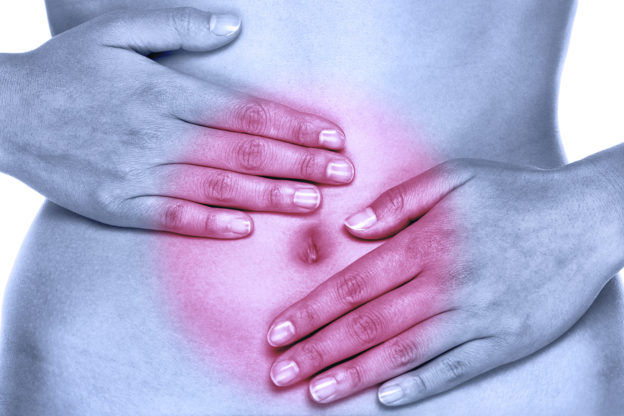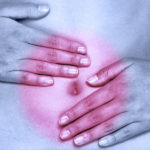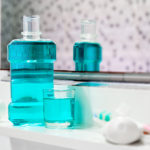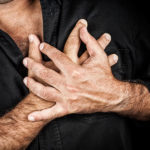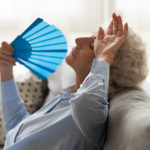By David Blyweiss, M.D., Advanced Natural Wellness
November 8, 2019
About six months ago, a good friend of mine called me up to complain of two weeks of worsening pain in his lower left abdomen.
He told me how the area was getting tender to the touch and how bathroom visits were becoming a painful constipated chore.
I didn’t waste any time and sent him to the ER right away.
Then, I jumped in my car to meet him there while the hospital doctors ran some tests. After a long wait, the CT scan came back and showed clear signs of significant diverticular disease in the exact area he was complaining of pain.
I wasn’t on my own turf so I sat back to see how the ER doctor would handle the situation… and wasn’t impressed.
First off, diverticular disease happens when you develop marble-sized pouches in your colon where stool, bacteria, and undigested food particles can get stuck on their way through your system.
For many people, this never causes a problem.
But for some, like my 47-year-old friend, the resulting inflammation and infection can cause extreme pain called diverticulitis.
So there I was, waiting for the ER doctors to make the right call. And they failed… miserably.
MD Exposes the Hidden Danger to Your Eyes

When your eyesight starts to fail, it's a real problem. Suddenly you can't go to the grocery store... you can't get to the doctor if you have an emergency... you can't meet your friends for dinner…
Your "regular" doctor doesn't have time to keep up with the latest research. And the same goes for eye doctors. They go to school to learn how to fit you for glasses and contacts, but have no way of preventing the damage and loss of eyesight that threatens your freedom and independence.
Let me show you something that explains a LOT about how your eyes work.
In my FREE Special Report, I'll show you a HUGE, untapped resource for your eyes that safely and naturally restores clear, effortless eyesight.
Click here to get started...
The signs were obvious, but the ER doc misdiagnosed my friend with gallbladder disease since the scan also showed a single calcified gallstone and simply told him to avoid certain foods and sent him on his way.
Meanwhile, his pain was getting worse…
Seeing a friend in need, I took matters into my own hands to help him out. Since he had already seen me professionally in the past I felt comfortable prescribing the appropriate antibiotic and helped him adjust his diet to include more soluble fibers, hydration and magnesium
Within 48 hours, his pain was completely gone and his movements were easier and regular.
The thing is, about one out of every four people with diverticular problems experience diverticulitis at some point. It doesn’t discriminate between age and gender.
And very often, it’s misdiagnosed.
It may strike when you are in your 60’s – but it’s also common in men and women who are younger than 45-years-old.
Now, a hundred years no one had ever heard of diverticulitis. Today it’s running amok.
Here’s why…
What Causes Diverticular Problems in the First Place?
For years it was believed that lack of fiber played a crucial role in the development of diverticulosis. More recently, too much fiber has been blamed.
So, who’s correct? Should you eat more fiber or less?
I’ll make it easy for you. Eat more of the right kind of fiber and less of the wrong kind.
The wrong kind of fiber is typically “non-soluble” fiber found in things like prepared breakfast cereals and high fiber snack bars. A lot of this fiber is synthetic.
Are You Suffering From...
- Love handles and a pot belly
- Romance that isn't what it used to
- Forgetfulness and inattention
- Low (or no) strength and endurance
- A sex drive that's shifted into neutral...or worse
If so...you may have Mature Male Burnout. Click here to discover more about this unique condition and what you can do about it.
Grains these days are much different from the ones your grandparents ate years ago. They’ve gone from a simple agricultural product to a lab created hybrid food source. And this affects the quality of fiber they contain.
Non-soluble fiber acts as a bulking agent. It tends to move things along so waste passes more quickly from your intestines. But it does nothing to protect you against diverticular disease.
It may even make the problem worse.
The best type of fiber is called “soluble” fiber. Some foods high in this type of fiber include beans, figs, mangoes, sweet potatoes, apricots, oranges and berries. Brussels sprouts, turnips and asparagus are also high in soluble fiber.
This type of fiber aids vital nutrient absorption by slowing digestion. Better yet, it goes through a fermentation process in your gut. This helps the “good” bacteria in your digestive system to flourish.
These good guys have an important role…
They don’t just help you have regular bowel movements. They also help prevent bad bacteria from taking up residence in your colon, where they can accumulate in those diverticular pouches and set the stage for infection and inflammation.
Protect Your Bowels With This Easy Fix!
Another thing that sets the stage for diverticular problems is when you don’t fully evacuate your bowels. And believe it or not, the modern toilet bowl actually makes this worse.
Sitting up straight on the toilet creates a natural kink in the lower part of your colon. This kink is designed to keep stool in. Without it, you would suffer incontinence. But you don’t want it interfering with the complete emptying of your bowels.
A squatting position, on the other hand, opens the bowel and relaxes colon muscles for faster, easier and more complete elimination. That’s why I often recommend investing in a Squatty Potty.
This simple foot stool is designed to fit around the base of your toilet and helps raise your feet from the floor for a more natural squatting position. Just search online to find a local vendor….or get it from Amazon.
Natural Tips to Clear Up Symptoms of Diverticulitis
Next, it’s time to turn your focus on the kitchen.
Diet is very important when it comes to preventing diverticulitis. Getting plenty of natural, soluble fiber from whole foods, limiting red meat consumption and staying away from sugars are great places to start.
But what can you do if you know you have diverticulosis and increasing discomfort before an actual painful to the touch acute situation?
Give your colon a break. Switch to a liquid diet for a day or two so your colon can have time to recover. Some suitable options include low sodium broths, clear soups, water, tea, coffee and herbal teas.
Kill off bad bacteria. Colloidal silver is a wonder antimicrobial. It has the ability to destroy many microorganisms at very low concentrations, and can help kill off some of the bad bacteria in your colon. Be sure to stick with products designated as “true colloidal silver”. These are the safest and most pure preparations. I recommend and personally use Natural Immunogenics’ “Argentyn 23” for me and my patients, family and friends when there is a need for a safe and effective natural antimicrobial.
Repopulate your digestive flora with a quality probiotic. A probiotic formula that contains a prebiotic along with lactobacillus, bifidobacteria and other strains of healthy bacteria. The higher the colony count, and the more live strains involved, the better off you’ll be.
If not… daily kombucha, sauerkraut, kefir or other fermented foods can readily take their place. And remember, if something in your body is whispering that there might be a problem, listen to it…don’t wait for your body to shout help out loud. Finding a small problem early on saves time and maybe your health.
SOURCES:
Nguyen GC, et al. Epidemiological trends and geographic variation in hospital admissions for diverticulitis in the United States. World J Gastroenterol. 2011 Mar 28;17(12):1600-5.
Peery AF, et al. Constipation and a low-fiber diet are not associated with diverticulosis. Clin Gastroenterol Hepatol. 2013 Dec;11(12):1622-7.
Hobson KG, et al. Etiology and Pathophysiology of Diverticular Disease. Clin Colon Rectal Surg. 2004 Aug; 17(3): 147–153.
Strate LL. Lifestyle factors and the course of diverticular disease. Dig Dis. 2012;30(1):35-45.
Iroha, et al. Antibacterial efficacy of colloidal silver alone and in combination with other antibiotics on isolates from wound Infections. Scientific Research and Essays. 2007. 2.8: 338-341.

